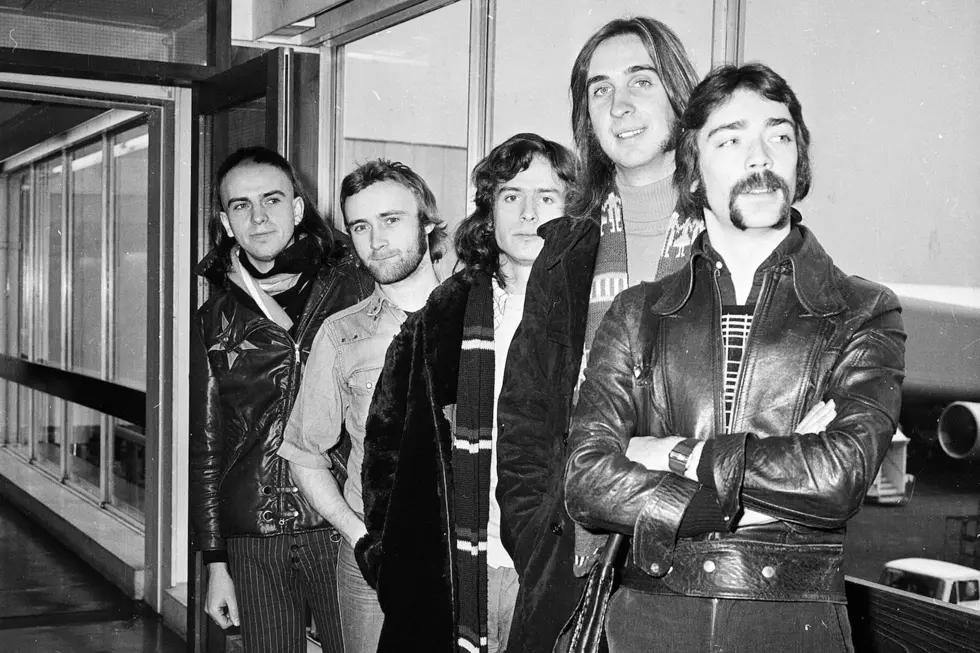
How Genesis Inched Closer to a Breakthrough on ‘Foxtrot’
The second album from Genesis' now-legendary five-man lineup didn't exactly arrive with much fanfare on Oct. 6, 1972. Before Foxtrot, the group had never had a Top 20 album, and its most recent effort, Nursery Cryme, had been as intriguing as it was inconsistent.
Foxtrot, however, finally found a way to balance the whimsy of the group's earliest music, its quickly developing flair for longform narratives and a newly discovered rock brawn -- setting a template for brilliantly overblown concepts that would spark a sequence of early '70s-era prog-rock triumphs.
Steve Hackett's guitar, often the centerpiece during his 1971-77 tenure, is complemented by Tony Banks' distinctive turns on a newly acquired Mellotron, notably on the seminal "Watcher of the Skies." (Later, Mellotron manufacturers Streetly Electronics even added a preset called the "Watcher Mix" that mimicked Banks' sound perfectly.)
"Watcher" heralded a series of ever-lengthening collaborative breakthroughs, as all six songs were credited to everyone on Foxtrot. Together, they fashioned Genesis' first great album.
Listen to Genesis Perform 'Watcher of the Skies'
Phil Collins and Mike Rutherford formed a complex rhythmic counterpoint that flowed through to tracks like "Get 'Em Out by Friday," where Peter Gabriel continues to more fully inhabit a series of character voices, toward the first-side-closing "Can-Utility and the Coastlines."
Hackett offers a touching instrumental showcase on "Horizons," a track that grew out of a lifelong fascination with Bach, before Genesis launch into a song that just might be its masterwork. The side-long "Supper's Ready" (which runs more than 23 minutes) hints at ideas fleshed out on 1974's expansive The Lamb Lies Down on Broadway.
The track provides a moment of lyrical wit that sparks the cover image of a fox on a cluster of rocks by artist Paul Whitehead, who also did the art for 1970's Trespass and 1971's Nursery Cryme.
Genesis Solo Albums Ranked
See Phil Collins in Rock’s Craziest Conspiracy Theories
More From Ultimate Classic Rock









